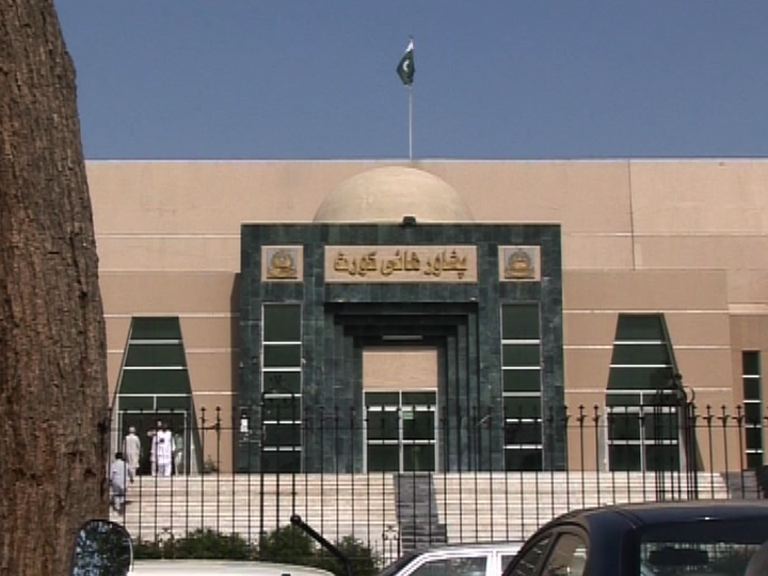PHC suspends death penalty awarded by military courts

PESHAWAR: The Peshawar High Court (PHC) on Tuesday suspended the execution of a death-row prisoner, who was sentenced to death by a military court after he was found to be involved in terrorism.
Haider Ali, now 21 years old, was arrested by security forces in 2009, when he was 14 years old and a 10th grade student at the Malakand Public High School, Swat.
Ali’s hanging was suspended after his parents filed a petition in PHC, challenging his death sentence.
His parents maintained in the petition that their son was arrested by security forces in 2009 on charges of terrorism, but they did not have any information about him after the arrest.
It was only recently, six years after Ali’s arrest, that they found out their son was imprisoned in a jail in Timergara, in Lower Dir district, and was sentenced to death by a military court, the parents said in the application.
Therefore, the implementation of the military court’s verdict should be immediately stopped, the petition said.
Announcing the court’s decision on the petition, a two-judge bench of the PHC comprising Justice Musarrat Hilali and Justice Younis Theem ordered to halt implementation of the military court’s verdict of Ali’s death sentence until September 8.
The court subsequently adjourned the hearing while issuing notices to the federal government, defence secretary, home secretary, General Officer Commanding Malakand and other concerned officers.
Earlier on Saturday, the Supreme Court office declined to entertain a petition moved by Zahir Shah, the father of Haider Ali, in which he sought orders for the authorities to provide the record of the trial court proceedings so that a proper appeal challenging the judgment of the military court could be filed either before the Supreme Court or the high court.
Advocate Zulfikar Ahmed Bhutta filed the petition before the Supreme Court on behalf of Mr Shah.
On Saturday, the Supreme Court registrar returned the plea to the petitioner on the grounds that he had not approached the high court concerned or any other appropriate forum available to him under the law for the same relief.
The Parliament passed the 21st Amendment and the Pakistan Army Act, 1952, to establish the special courts after the massacre in the Army Public School, Peshawar, last year.
On April 16 the apex court had suspended executions of six militants who were awarded death sentence by these military courts.
Earlier in August, the Supreme Court in a majority ruling upheld the establishment of military courts in Pakistan.
While dismissing petitions challenging the 21st amendments, a 17-judge full court of the Supreme Court, in a majority judgment, had reaffirmed that any order passed, decision taken or sentence awarded by the military courts will be subject to judicial review by the high courts and the Supreme Court on the grounds of being coram-non-judice, without jurisdiction or suffering from mala fides including malice in law.
Related News

Buy helmet, avoid challan; Motorway Police launches “Challan Nahi, Helmet” campaign
Various helmet stalls set up on GT road, Murree expressway ISLAMABAD, MARCH 4 /DNA/: TheRead More

T20 World Cup: England victory over New Zealand keeps Pakistan in semi-final race
COLOMBO, FEB 27: England defeated New Zealand by four wickets in the Super Eight thrillerRead More


Comments are Closed